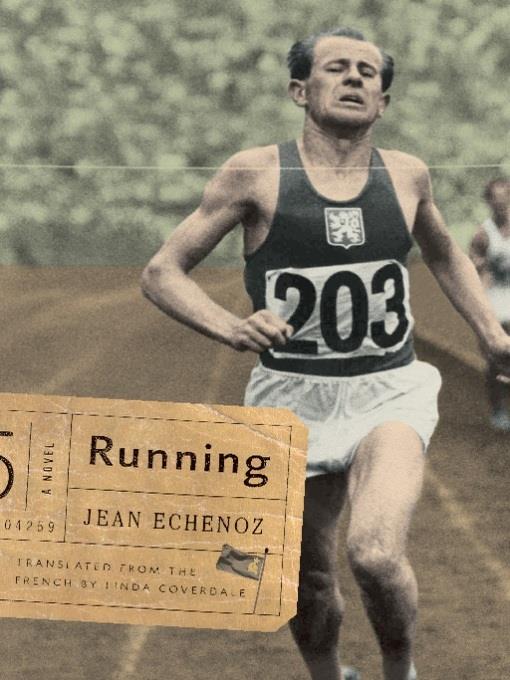
Running
A Novel
کتاب های مرتبط
- اطلاعات
- نقد و بررسی
- دیدگاه کاربران
نقد و بررسی

October 26, 2009
French author Echenoz (Ravel
) centers his new biographical novel on Emil Zátopek, the first Czech Olympic gold medal winner in track and field. The Nazi occupation of Moravia means mandatory participation in youth organizations; forced to participate in a race, Emil begrudgingly embarks on his athletic career, only to discover a passion for running. Emil's training techniques reject notions of moderation and energy conservation in favor of relentless speed training and little rest. These masochistic efforts pay off as Emil becomes a world champion. But postwar Czechoslovakia's political agenda not only determines his race schedule but also transforms him into a talking head against Western capitalism. In addition to the story's inspirational value, Echenoz elegantly draws parallels between the runner's lack of autonomy and that of his country, which only two decades after the end of WWII was occupied once again by the Soviets. But the author treats his subject with too much distance: he is a running machine, a figure neither fully realized nor entirely allegorical. Linda Coverdale provides a smooth translation.

November 15, 2009
Understated novel about the rise and fall of Czech runner Emil Zátopek.
Goncourt winner Echenoz (Ravel, 2007, etc.) recently seems to be specializing in thinly fictionalizing the lives of real people. Zátopek is a good choice for inherent drama; he was at first rewarded and then punished by Communist Party authorities. The decision to reward came easily, for Zátopek astounded all by running. For many years he remained an officer in the Czech army and received a promotion with almost every victory, from European championships to the Olympics. Echenoz emphasizes that Zátopek was not a stylish runner but instead an awkward and ungainly plugger—not pretty to watch but pragmatically effective. For a while he simply couldn't be beaten, and for more than five years he was the fastest man in the world in long distances. While his specialty was the 10,000 meters, he also showed himself adept at both 5,000 meters and marathons, winning gold medals in all three at the Helsinki Olympics in 1952. Eventually, however, age and a punishing training regimen took a toll on his body, and he started to lose. In one telling and sorrowful moment, Zátopek passes through Orly airport on his way to a race in Spain and sees the usual crush of news reporters and photographers."How kind of them to show up," he thinks,"it's always nice to see you haven't been forgotten." In fact, he finds, they're gathered to report on Elizabeth Taylor, who has just flown in from London. When he comments on the Soviet invasion of 1968, his na™ve and impolitic remarks lead the authorities to strip him of his army commission and his right to live in Prague, then to banish him to work in a uranium mine.
An engaging but subdued portrait of a legend.
(COPYRIGHT (2009) KIRKUS REVIEWS/NIELSEN BUSINESS MEDIA, INC. ALL RIGHTS RESERVED.)

























دیدگاه کاربران